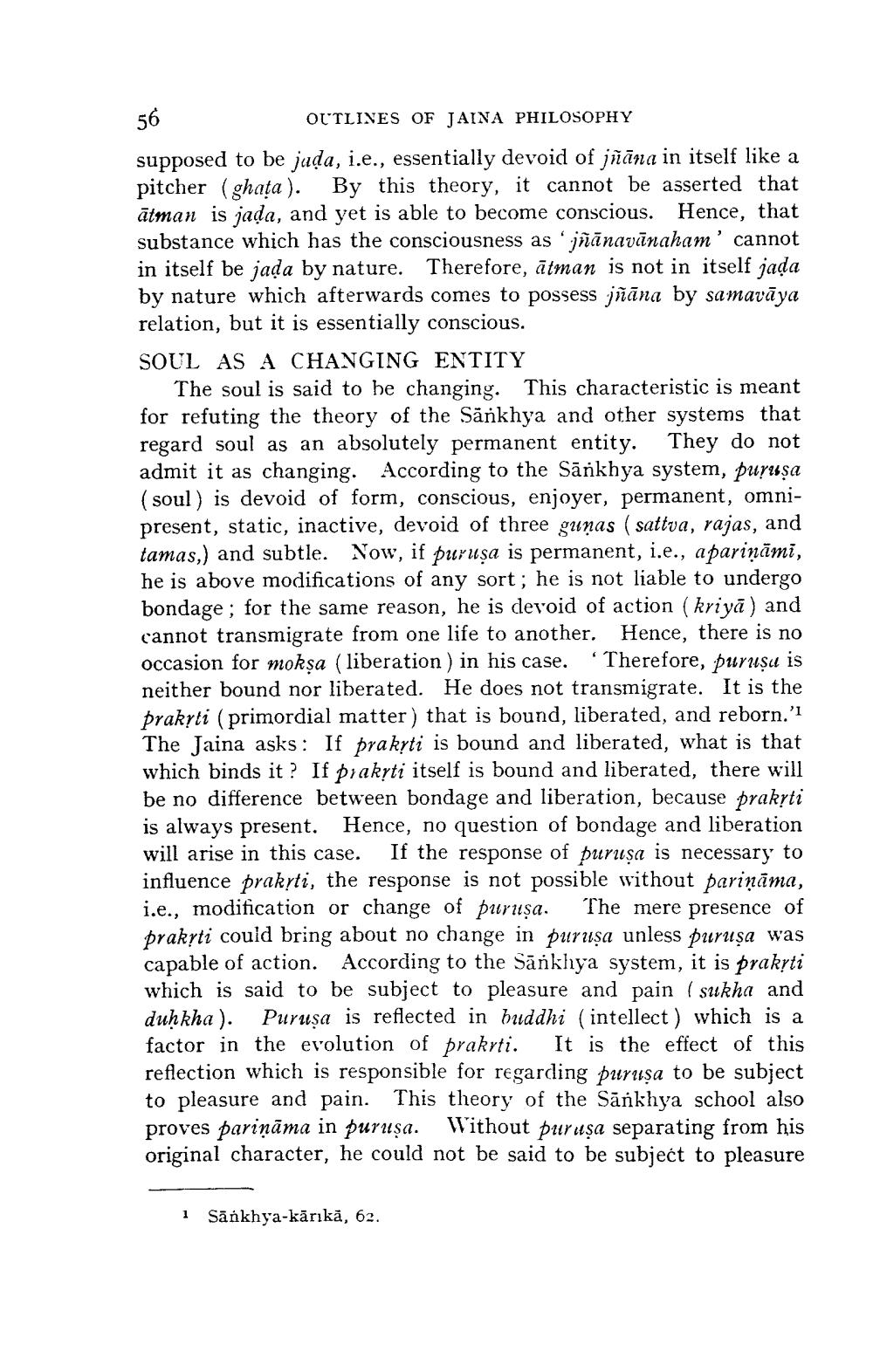________________
56
O'TLINES OF JAINA PHILOSOPHY
supposed to be jada, i.e., essentially devoid of jñāna in itself like a pitcher (ghata). By this theory, it cannot be asserted that Ātman is jada, and yet is able to become conscious. Hence, that substance which has the consciousness as 'jñānavānaham' cannot in itself be jada by nature. Therefore, ātman is not in itself jada by nature which afterwards comes to possess jñāna by samavāya relation, but it is essentially conscious. SOUL AS A CHANGING ENTITY
The soul is said to be changing. This characteristic is meant for refuting the theory of the Sänkhya and other systems that regard soul as an absolutely permanent entity. They do not admit it as changing. According to the Sānkhya system, purusa (soul) is devoid of form, conscious, enjoyer, permanent, omnipresent, static, inactive, devoid of three guņas ( sattva, rajas, and tamas,) and subtle. Now, if purusa is permanent, i.e., apariņāmi, he is above modifications of any sort; he is not liable to undergo bondage ; for the same reason, he is devoid of action ( kriyā) and cannot transmigrate from one life to another. Hence, there is no occasion for moksa (liberation) in his case. Therefore, purusu is neither bound nor liberated. He does not transmigrate. It is the prakyti (primordial matter) that is bound, liberated, and reborn.'l The Jaina asks: If prakyti is bound and liberated, what is that which binds it? If prakrti itself is bound and liberated, there will be no difference between bondage and liberation, because prakrti is always present. Hence, no question of bondage and liberation will arise in this case. If the response of puruşa is necessary to influence prakyti, the response is not possible without parināma, i.e., modification or change of puruşa. The mere presence of prakrti could bring about no change in purușa unless purusa was capable of action. According to the Sārkhya system, it is prakyti which is said to be subject to pleasure and pain (sukha and duhkha). Purusa is reflected in buddhi (intellect) which is a factor in the evolution of prakrti. It is the effect of this reflection which is responsible for regarding puruşa to be subject to pleasure and pain. This theory of the Sānkhya school also proves pariņāma in puruşa. Without puruşa separating from his original character, he could not be said to be subjećt to pleasure
1 Sankhya-kārıkā, 62.




